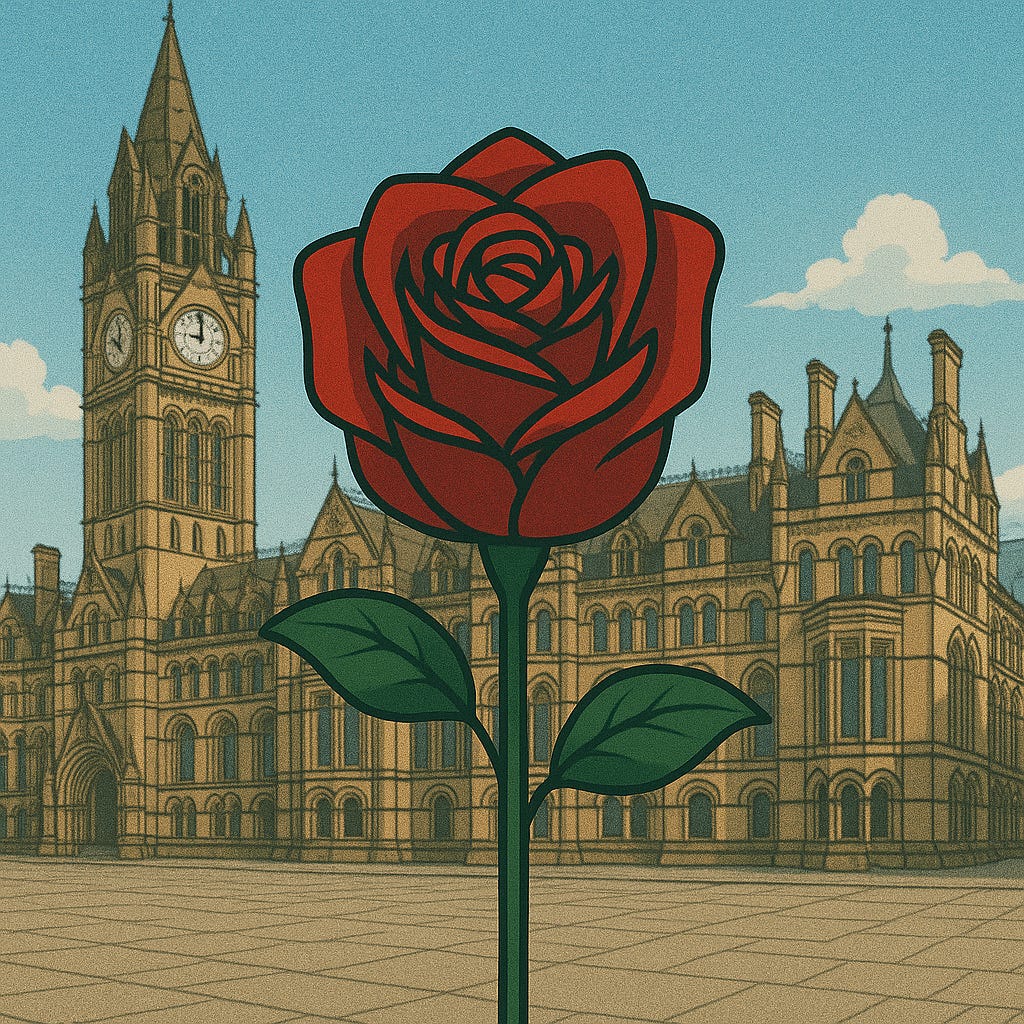Democracy Is Young: Why the Real Work Has Just Begun
Dr. Adam North discusses how democracy is still in its infancy and why we need to protect it.
Democracy, often hailed as the pinnacle of political organisation, is in reality a very young and evolving system. While it is frequently treated as a long-settled and well-established point in humanity's political development, it is far more accurate and constructive to see democracy not as a completed structure, but as an unfolding project—still in its formative stages.
Today the government released a policy paper titled: Restoring trust in our democracy: Our strategy for modern and secure elections, which addresses some of the ways in which we can protect our democracy going forward. But in this article I will argue that from a historical perspective, democracy is still an immature form of governance.
A Recent Emergence in Human History
Human civilisation has existed for roughly 10,000 years, yet the widespread practice of democracy is barely a few centuries old. The roots of democratic thought stretch back to ancient Athens in the 5th century BCE, but that early system was limited, excluding women, slaves, and non-citizens. The modern conception of democracy—characterised by universal suffrage, regular elections, and the protection of individual rights—only began to take shape in the late 18th century, with the American and French revolutions. Even then, these early democracies were deeply flawed by today’s standards.
Anthropologist David Graeber wrote that many of the democratic ideals we now associate with Western civilisation were, in fact, inspired by the political structures of Indigenous North American societies. While European settlers in the Americas largely operated from a mindset shaped by monarchies and rigid hierarchies, they encountered Indigenous communities organised around far more egalitarian principles. These societies emphasised collective decision-making, accountability, and individual autonomy—values that some Enlightenment thinkers and early American intellectuals came to admire and adopt. Yet, in a deep historical irony, these same Indigenous peoples were being dispossessed, exterminated, and dismissed as “savages”, even as their ideas were quietly influencing the emerging democratic models of the West.
(to read more on Graber click here)
The right to vote for all adults—regardless of gender, race, or property ownership—is a 20th-century achievement in many countries. In others, it remains an ongoing battle. Consider that Switzerland, often cited as a bastion of democratic stability, did not grant women the right to vote in federal elections until 1971. South Africa only became a true democracy in 1994. Democracy as we recognise it today is barely older than the internet.
Still Learning How to Be Democratic
Democracy is not just about holding elections. It is about the deeper cultivation of values: equality, accountability, transparency, civic participation, and the rule of law. These values require time to take root in institutions and, crucially, in the political culture of a people. Britain is still some way off fully embracing these values.
Most countries today are still navigating how to balance democratic ideals with social and economic realities. Voter suppression, misinformation, institutional corruption, and populist backsliding are reminders that democratic systems remain vulnerable. This vulnerability is not evidence of failure; rather, it highlights that democracy is still learning how to function in an interconnected, technologically complex, and unequal world.
The assumption that once democracy is installed, it naturally self-sustains, has proven dangerously naïve. Democratic norms must be cultivated, defended, and revised in light of new challenges. This is the work of generations.
The Myth of Democratic Arrival
The belief that we have “arrived” at—as if it were the final stage of political evolution—is not only historically inaccurate but dangerously complacent. It lulls societies into a false sense of permanence. When people assume democracy is self-sustaining, they stop tending to its foundations. Cynicism creeps in. Participation declines. Institutions erode.
In truth, democracy is not a monument but a method—one that requires constant negotiation, renewal, and self-correction. Its strength lies not in how neatly it’s written into a constitution but in how adaptively it operates in the real world. A democracy’s vitality depends on its citizens’ willingness to question it, improve it, and remain engaged in its ongoing development.
Democracy is, at its core, a system that resists finality. It doesn’t claim to be the best form of governance—only one that allows us to decide, together, what works and what doesn’t. In theory, we even have the right to vote democracy out of existence. In practice, we’re witnessing cracks in democratic norms, particularly in places like the United States, where the very principles of pluralism and accountability are being openly challenged.
This reality should be a wake-up call. If democracy is to survive, let alone thrive, we must abandon the myth of its arrival. The system is not finished—it is barely underway. And its future depends entirely on how seriously we take our roles within it.
The Road Ahead
Thinking of democracy as the beginning of a journey opens us up to innovation and humility. If we acknowledge that our current systems are immature, we can ask better questions: How do we create a truly inclusive society? How can digital technology support, rather than undermine, democratic life? What forms of economic and social democracy are necessary to support political democracy?
We are still early in the process of answering these questions. The democratic experiment is far from over—and that’s a good thing. Like science or art, democracy is a human invention that demands imagination, critique, and continual reinvention.
Conclusion
Far from being a seasoned political system, democracy is a fledgling idea—barely out of its adolescence in historical terms. Rather than viewing it as a final destination, we should see democracy as a path still being forged. Its promise lies not in perfection, but in its potential—a system that, if nurtured, can better reflect the dignity, equality, and agency of all people. But only if we continue to treat it as the beginning, not the end.


